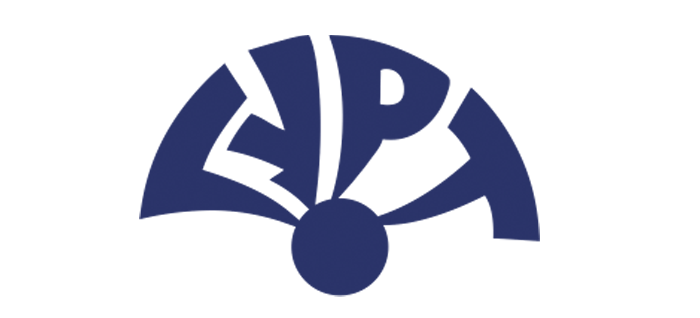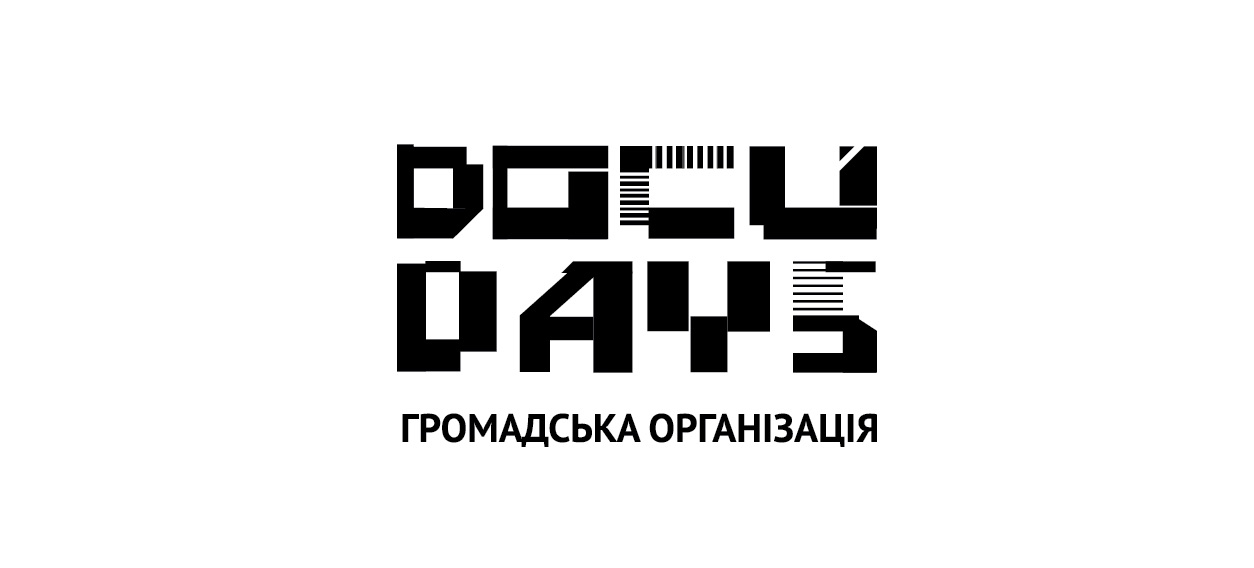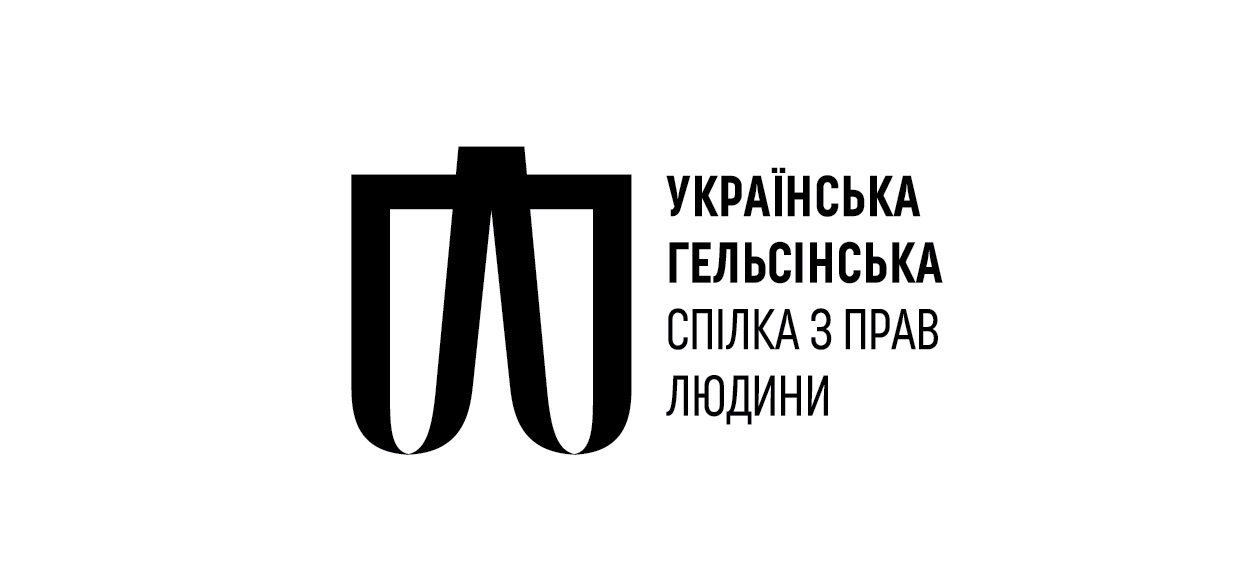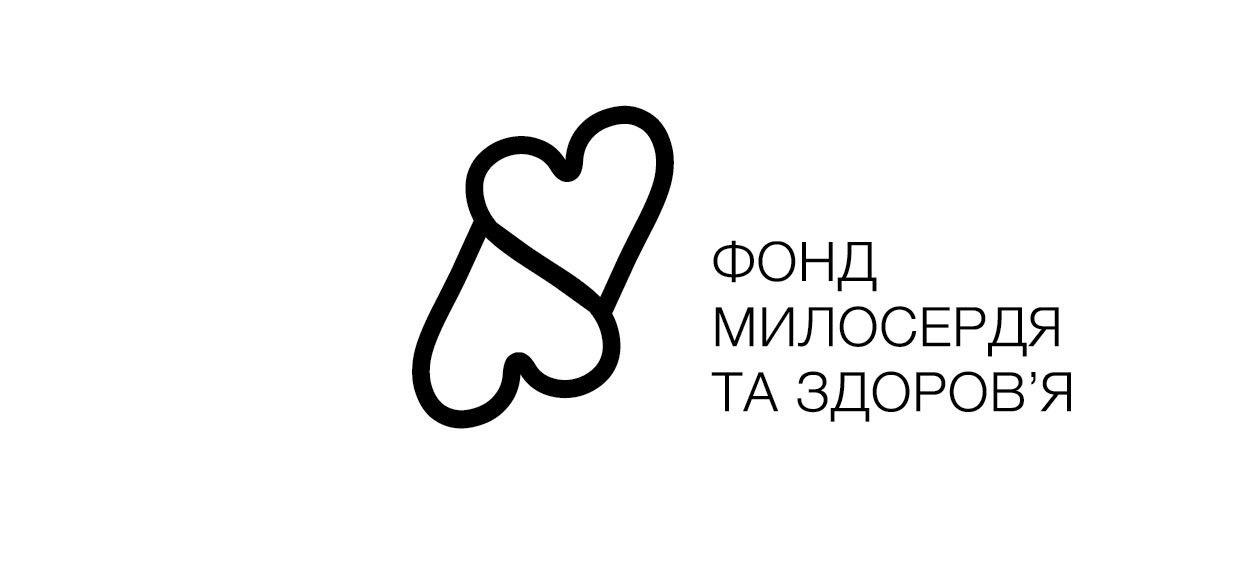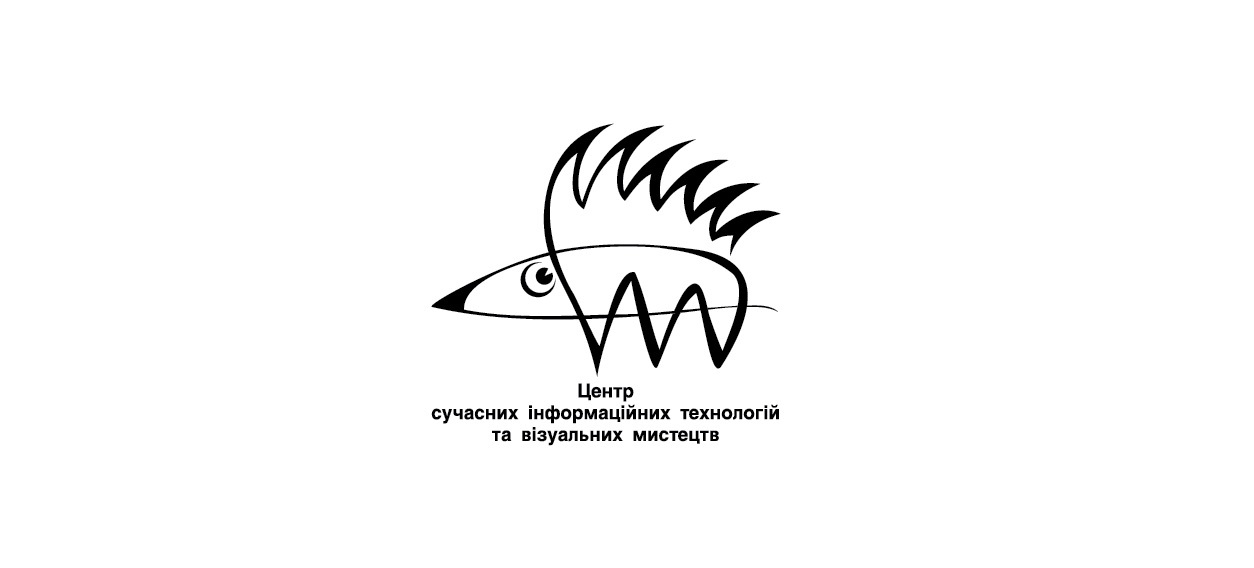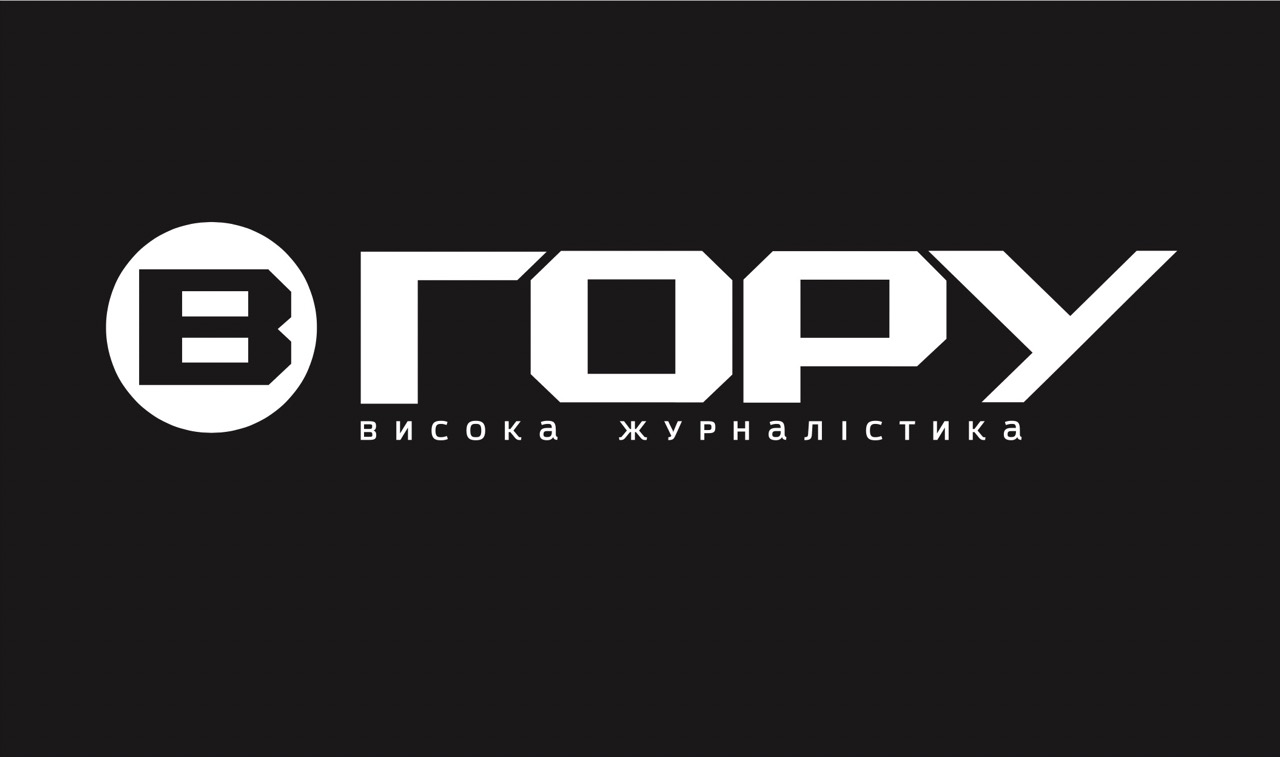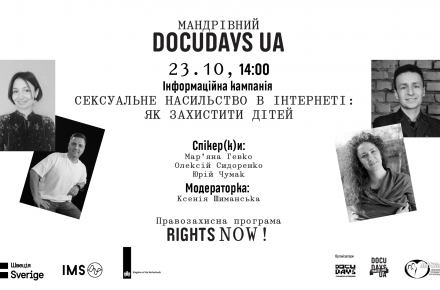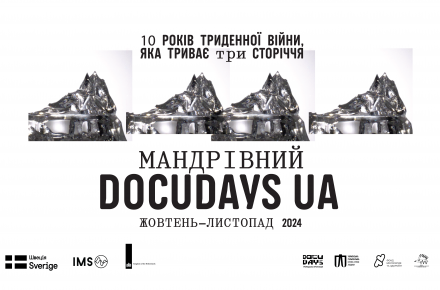Towards intelligence through convention, towards heart through art. Docudays UA coordinator Oleksandr Stepanenko
Towards intelligence through convention, towards heart through art. Docudays UA coordinator Oleksandr Stepanenko
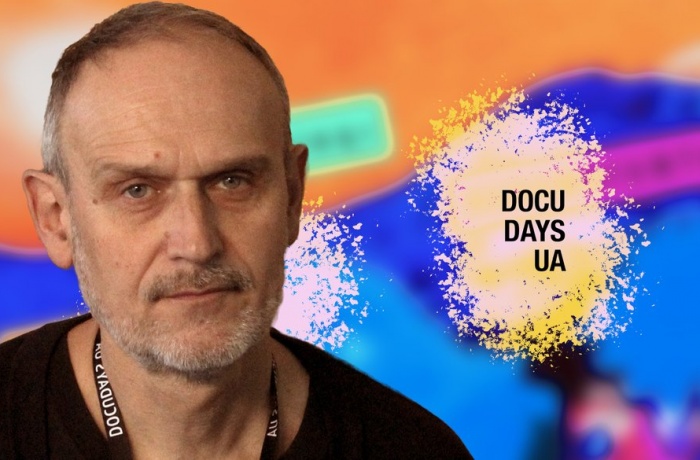
What helps Ukrainians to stop tanks with their bare hands? To fundraise millions for Bayraktar drones? The Travelling Docudays UA and Suspilne Culture have prepared ten stories about the resilience of Ukrainians which will help us find answers to these questions.
This is a conversation with Oleksandr Stepanenko, Executive Director of NGO Environmental Humanitarian Association Green World, regional coordinator of the Travelling Docudays UA Festival in Ternopil Region, manager and moderator of the Docudays UA film club at the Chortkiv City Library known as the Film Club on Green Street.
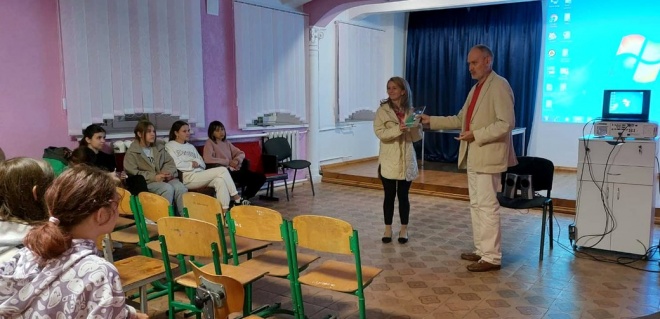
Photo credit: Docudays UA
He has organised as many as 13 Travelling Festivals in Ternopil Region, founded the Docudays UA film club in Chortkiv 8 years ago, organised several hundred film screenings and discussions about them. Since the beginning of Russia’s full-scale invasion, Stepanenko has been helping internally displaced people to adjust to their new place of residence. Read about his work in his own words below.
IN ORDER TO WIN, WE NEEDED TO KNOW OUR RIGHTS
I became interested in human rights in the early 1990s. Ukraine was fighting the dictate of the Communist Party, for human liberty and national independence. In order to win this fight, we needed to know human rights and know how to defend them.
In 1989–90, I was the head of the People’s Movement of Ukraine in Chortkiv District. At that time, the Movement hadn’t become a political party yet. Then I was the first head of the Environmental Humanitarian Association Green World, one of the founders of the civic initiative called Helsinki Initiative XXI. These organisations later became members of the Ukrainian Helsinki Human Rights Union. UHHRU soon became the most influential human rights organisation in Ukraine, which it still is today.
On the other hand, my interest in the topic of human rights was, to an extent, related to my professional work as a doctor.
Occasionally the hospital treated people with signs of violence who arrived from police departments or from the regional pretrial jail.
Back then we appealed to the prosecutor’s office to clarify the circumstances in which the signs of violence developed, we helped the victims in their court cases, provided publicity in the media. The hospital administration did not want any problems with the law enforcement, and they used many ways to try and stop the doctors who were too active, so we had to learn how to defend our point of view.
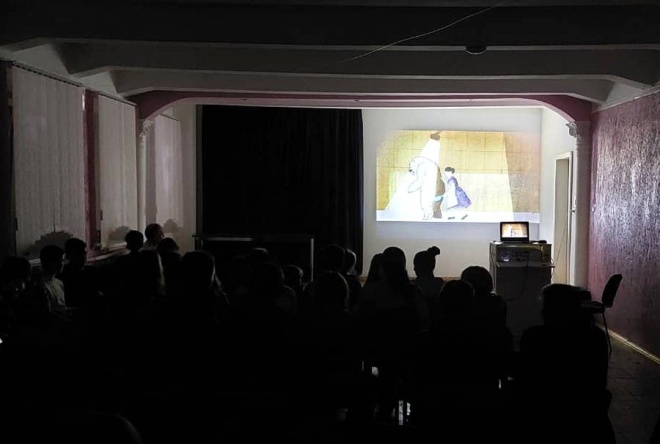
Photo credit: Docudays UA
It was at that moment when we managed to set up the UHHRU public reception in Ternopil. In the ten years of the reception’s operation, I acted as its coordinator, and our colleagues Olha Kushneryk and Petro Liupa worked as lawyers at the reception.
You can reach people’s minds through legal acts, but you have to look for the path to their hearts through art.
I have been familiar with the Docudays UA festival since the idea of its creation was proposed by Yevhen Zakharov, the leader of the Ukrainian Helsinki Human Rights Union and the head of the Kharkiv Human Rights Group. Back then I was a board member of UHHRU, and I had the opportunity to watch the idea of the Docudays UA Human Rights Documentary Film Festival emerge and develop.
The UHHRU Board supported the initiative in 2002–3, they looked for funding, formed the team, discussed the procedural issues of the future festival. I was directly involved in developing the Declaration of Ethical Foundations for the Docudays UA community.
SEE A PERSON IN EVERYONE
Practically since the very beginning of the Travelling Docudays UA festival we became its partner in the Ternopil Region. By 2022, we had already organised the festival 15 times. Back then, nobody was particularly interested in documentaries, not to mention human rights documentaries. That was our challenge, which we successfully overcame by trial and error. Because the most important thing in this work is to find and know your audience.
The first film club in Chortkiv, which everyone remembers as the Film Club on Green Street, was organised during the Revolution of Dignity (2013–14). Since then, we have held several hundred screenings as a part of the film club and the Travelling Festival.
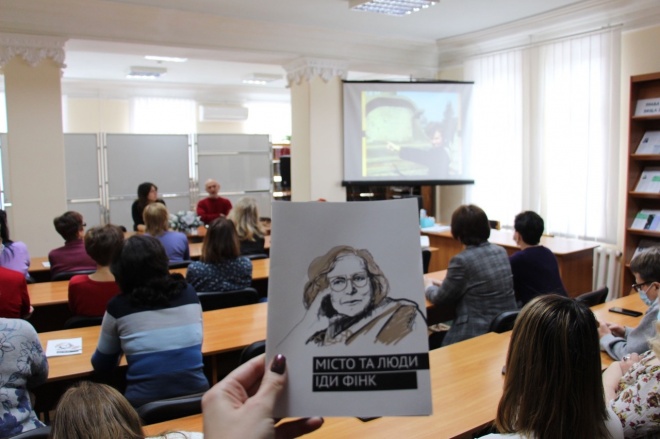
Photo credit: Docudays UA
Our first audience in 2013 were high school students from the Chortkiv Grammar School. The class leader was a girl from an internally displaced family from Luhansk, Roksolana Nesterenko. I am mentioning her here for a reason. During discussions at the film club, we talked a lot about the war in Donbas, and I could see how difficult it was for Roksolana and how she wanted to talk about it.
So this girl brought more and more students from her class to every meeting because she wanted to tell them the truth about the occupation of Donbas.
Together we set up a dialogue bridge between the local youth and a person who had already felt what the Russian World and occupation was, who had felt that something heavy, unknown, dangerous was encroaching on Ukraine.
Every Thursday, our library was full of interesting conversations. The screenings were usually attended by young students of humanities: grammar school students, students from the pedagogical and medical colleges. They are the most active in the discussions. According to my observations, it is because documentary films shape their understanding of the value of a person, of freedom, human dignity, so they have no complexes or false deference for adults.
Later we initiated the film club at the Ternopil National Pedagogical University. Its leader is Natalia Pasichnyk, a docent at the Department of the Theory and Practice of Translation.
Another part of our audience are lawyers from Free Legal Aid Centres. We mostly work with them online and on workdays. And this is extremely important, because they communicate with vulnerable populations every day. We try to help them see every visitor as a PERSON who needs help. And at the same time we help them avoid burning out.
But the most difficult—and at the same time extremely interesting—audience are prison inmates.
Even though some of them are not open to contact and do not always want to watch documentaries. For example, we gather an audience at a penal colony to watch films. With the administration’s help, we manage to invite 40–50 people to the hall, but some of them live within 10–15 minutes, most likely because these people expect something entertaining.
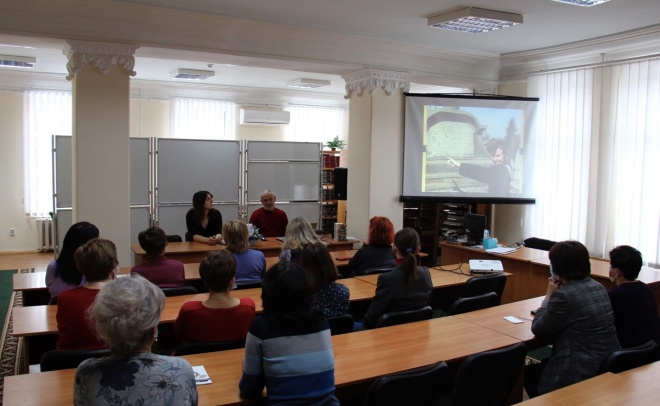
Photo credit: Docudays UA
But the 15–20 people who remain help us understand what cinema is, and how necessary our conversation with them here is. You don’t often see such long discussions as we have with these people. Sometimes we discuss a film for several hours! During that time we forget that there are internal prison rules, there are no better or worse people among us, and the administration seems to vanish. Sometimes people have such deep comments on the film, they tell such incredible stories about themselves, they are able to distinguish between good and evil in extremely complex situations so well that you wonder and think in pain: “What are they here for?”
Nowadays we try to work with IDPs. The Chortkiv community has registered over 4,000 of them since 24 February. We establish contact with this audience via our colleagues from youth organisations and teachers whom the IDPs are in contact with.
It is not easy, but we want to talk to them, listen to their stories, tell them about our land, about our city, about our local characteristics. We believe that we will help them overcome trauma this way. By building these connections, we want to shape good relations between IDPs and local residents.
(NON-)PERIPHERAL PROBLEMS
I am an environmentalist by worldview. I realise that if we lose sight of the problems of our natural environment now, we will have to spend even more effort and resources to overcome the consequences later. So the environmental topic is one of the most important ones both at the Travelling Festival and at our film club.
In my opinion, Ukrainian documentary filmmaking should make more films focusing on environmental issues, because their urgency is very high in all of our regions.
It is both the excessive cultivation of lands, and industrial pollution, and river exhaustion, and the consequences of the Chornobyl disaster.
Do you know that Western Podillia has the highest number of karst caves in Ukraine? In simple words, these are underground cavities that developed as a result of alkaline erosion of soluble rock. It is incredibly beautiful! Some of these caves have underground streams and even lakes.
For instance, there’s the famous Lake Cave nearby, in which, by the way, about 40 Jews were hiding from the Nazis during World War II. And the water in this cave almost disappeared back in 2015. This is a sign that groundwater levels have dropped by tens of metres already. Every few years, once-full rivers in the region experience low water level periods. Every month, summer temperatures are one to four degrees higher than average for many years.
Of course, during the war this worrisome information is sidelined, but sooner or later the war will end.
I am convinced that the government and civil society must lobby for measures to preserve the natural environment already today.
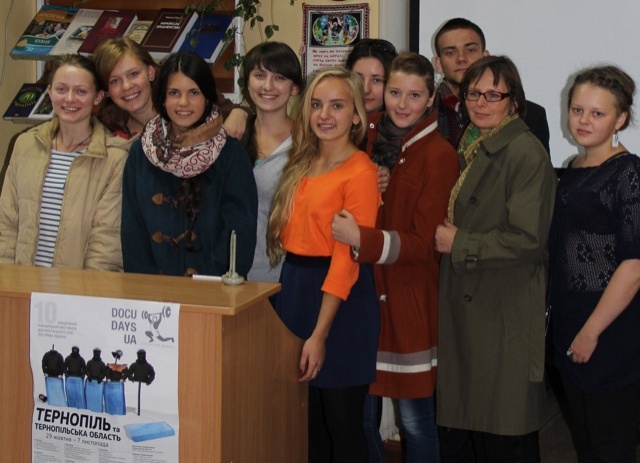
Photo credit: Docudays UA
We try to do it using documentary cinema as well. For example, last year we showed the film Honeyland by Ljubomir Stefanov and Tamara Kotevska as a part of the Travelling Festival. The film’s protagonist, Hatidze Muratova, lives in a village abandoned by all its former residents, cut off from electricity—the mountain village of Bekirliya in North Macedonia. She takes care of her disabled 85-year-old mother and, despite her extremely basic living conditions, she tries to preserve the archaic tradition of beekeeping. For her, this craft is a source of material and spiritual living. One day Hatidze’s peace is disturbed by a large nomad family. For the newcomers, her “honeyland” has no sacred significance, they have different values, they are only interested in money…
The film’s story is relevant for Ukraine. Macedonia is also a multinational country, it also became independent in the 1990s, Macedonians have undergone a difficult path towards self-identification, state building and recognition. Settlements similar to Bekirliya can also be found here. And not just in the Chornobyl Zone. Meanwhile, many Ukrainians are undergoing painful processes of self-identification right now, in the conditions of the war. Documentaries play an incredibly important role in these processes.
LEARNING TO LIVE WITHOUT FALSENESS
People are born free. And this is not just a quote from the Universal Declaration of Human Rights, this is the basis of life in a democratic country with the rule of law. The right to be free people is what we pay a horrible price for in this war. We will win because we are defending our freedom and our home.
I believe that it is important in this war to avoid giving in to the spread of hate or misinformation, to keep a cold mind, and to hold on fast to the most important human values—this gives us strength to fight and win.
The value of our festival, our film clubs is that we try to talk about human dignity and the rule of law, to shape critical thinking, develop a realistic view of life without rose-coloured glasses, without cheap populism or propaganda.
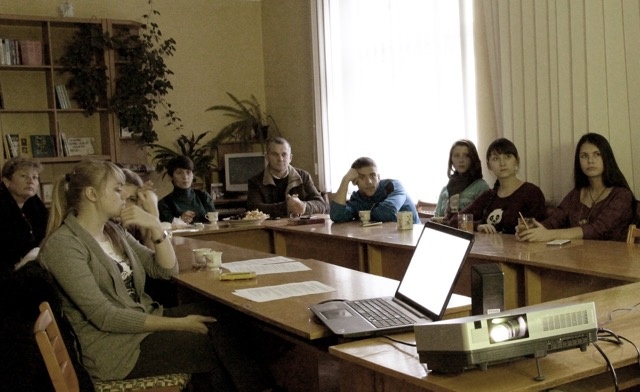
Photo credit: Docudays UA
The war has revealed many processes that have been hidden until now, and the real essence of many people. New leaders, a new country must be born from the suffering and conceptualisation of this historic experience. We must learn how to live in a new world without falseness, without ignoring rights, without corruption, abuses of power, cult of money…
The art of documentary cinema is very helpful for this because it shows life as it is and suggests the path towards positive change. This path will not be easy. We will have to learn a lot and work a lot on this path. But it is worth taking for the sake of the future of our children and our country.
Recorded by Khrystyna Biliakovska
The Travelling Docudays UA 2022 has happened—despite bombings and blackouts! On 12 November–30 December, audiences all over Ukraine and even abroad watched talented Ukrainian documentaries offline and online. Viewers abroad joined Travelling Festival events for the first time: in Germany, Israel, Norway and Poland.
The Travelling Docudays UA 2022 had:
- 251 film screenings;
- 19 films made before and after the full-scale invasion;
- over 200 hours of human rights documentaries;
- 84 cities and towns in 17 regions of Ukraine;
- 82 events;
- and hundreds of satisfied viewers who have already become a part of our DOCU/civilization.
There were also 26 regional coordinators whose experience and incredible stories give an infinite number of answers to the question “Why are Ukrainians winning?” We, the team of the Travelling Docudays UA International Human Rights Documentary Film Festival, shared 11 of these answers with you. Now we offer you to find your own!
Happy New Year!
Let it bring us victory!
